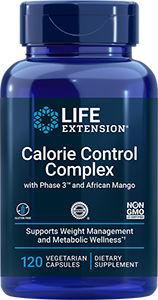- Science & Research
- Science News
- Newsletter
- 2011
- October 25

Newsletter
Newsletter
Study Finds Potential For Omega 3 Fatty Acids In Prevention And Treatment Of Arthritis
Study finds significant potential for omega-3 fatty acids in the prevention and treatment of arthritis
Tuesday, October 25, 2011. Writing in the September, 2011 issue of the journal Osteoarthritis and Cartilage, British researchers report the results of an animal experiment which found that omega-3 fatty acids reduced many of the signs of osteoarthritis. "This study is the first to look at both cartilage and subchondral bone changes with increased dietary omega-3 polyunsaturated fatty acids," John Tarlton of the University of Bristol's School of Veterinary Sciences and his colleagues announce. Dr Tarlton's team compared the effect of a standard high omega-6 diet containing corn oil or a diet enhanced with fish oil, which is high in omega-3 fatty acids, in a breed of guinea pigs that naturally develop arthritis. An arthritis-resistant breed of guinea pigs was used as controls. The animals received the diets for 20 weeks, after which cartilage, bone and blood factors were examined for signs of the disease. Among the arthritis-prone guinea pigs given omega-3, the majority of disease indicators were reduced in comparison with animals that received diets that did not contain fish oil. "There was strong evidence that omega-3 influences the biochemistry of the disease, and therefore not only helps prevent disease, but also slows its progression, potentially controlling established osteoarthritis," Dr Tarlton noted. "The only way of being certain that the effects of omega-3 are as applicable to humans as demonstrated in guinea pigs is to apply omega-3 to humans. However, osteoarthritis in guinea pigs is perhaps the most appropriate model for spontaneous, naturally occurring osteoarthritis, and all of the evidence supports the use of omega-3 in human disease." "Most diets in the developed world are lacking in omega-3, with modern diets having up to 30 times too much omega-6 and too little omega-3," he added. "Taking omega-3 will help redress this imbalance and may positively contribute to a range of other health problems such as heart disease and colitis." "The possibility that omega-3 fatty acids could prevent osteoarthritis from developing has been a tantalizing one," remarked Professor Alan Silman, who is the medical research director of Arthritis Research UK, which funded the study. "Some limited, previous research in dogs has suggested that we were a long way away from understanding the potential use in humans. However, this current research in guinea pigs is exciting as it brings us closer to understanding how omega-3 might fundamentally interfere with the osteoarthritis process, and that it could potentially be taken as a treatment." |
||||||||||||||||
 |
||||||||||||||||
|
||||||||||||||||
|
||||||||||||||||
 |
||||||||||||||||
|
||||||||||||||||
|
||||||||||||||||
The latest news on aging, nutrition, and vitamins
Lab
Testing
How Life Extension lab testing works











